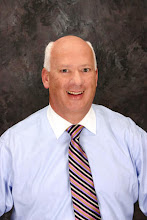Re: November 2011 General Election Questionnair
The following are my responses to a September 23, 2011 letter requesting my views to the proposed questionnaire. By request, each of my answers are to no more than 175 words.
1. What are the motivating factors in your decision to run for public office?
I have been a Findlay resident for nearly 50 years, having attended St. Michaels and Findlay City Schools some years ago. My family roots were planted in Findlay by my parents, who taught in Findlay City Schools and served in other community organizations. I have strong personal commitments to Findlay through my wife Shirley, our children, many friends who have touched our lives over the years and my law practice.
Our founders envisioned a government that works best when balanced by competing voices, a government that works through checks and balances. I want to bring a voice of balance to Findlay City Council. I have helped with successful petitions and referenda for issues important to Findlay citizens and businesses. These represent a voice for the people of our community. I have also seen how some local officials abuse their authority at substantial cost to local taxpayers. By my experience and professional background, I hope to bring a balance that makes our city work harder and better in serving the people of Findlay.
2. What are the most important priorities that you feel need to be set, should you win in November?
Our City must preserve essential police and fire services for our citizens while balancing continuing budget constraints. The new state budget threatens to cut local funding by 25% in fiscal 2012 and 50% the next year. These cuts will have the most severe impact on our most venerable citizens. I believe the answer is in asking neighbors to look out for one another. A city of neighbors looking out for one another is a better place to live and for business. This is a time when we must ask – what can we do for our City and our neighbors.
We must continue to address flood mitigation in an open and deliberate manner. Each step must be open to and invite substantial public input. We need answers that allow us to responsibly plan the future for our neighbors and businesses. I support a comprehensive remediation plan that incorporates engineering recommendations, residential properties purchased and converted to a mid-town park area while protecting downtown business property.
We must embrace our future together as a City of neighbors.
3. Of those priorities, what would you recommend we do – as a community – to address them?
As a City of neighbors blending individual and business interests, I believe we must address economic, public service, flood mitigation and other issues with open disclosures and discussion.
Our City Council must engage in the full public disclosure and discussion of alternatives to address our priorities to assure we are acting as stewards of the public trust in a local government of the people, by the people, for the people. We must invite public input and participation in our efforts to seek and selecting solutions.
Members of our Findlay City Council must seek to identify issues and provide clear recommendations with tangible results, including costs. Each part must be conducted with sufficient notice and at a time that is convenient and open to the public.
We must constantly ask what we can do for for our neighbors. If we try to help our neighbors, we, as a city, are all better for it. I believe this will strengthen every part of our community for people and business.
